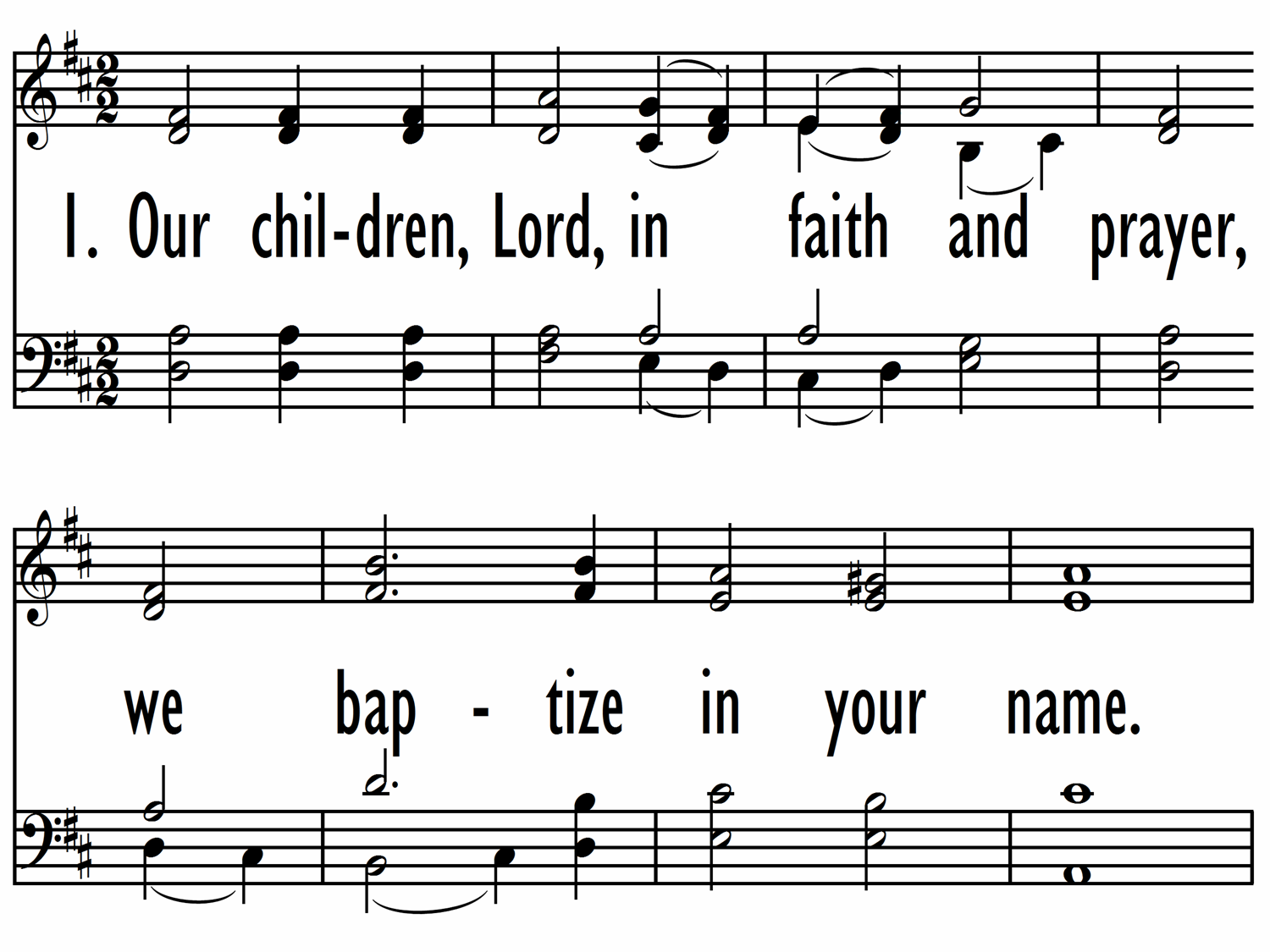- |
User Links
Our Children, Lord, in Faith and Prayer
Hymn Information
- First Line
- Our children, Lord, in faith and prayer
- Author
- Thomas Haweis, 1732-1820 (alt.)
- Text Source
- prayer text: from the Order for the Sacrament of Baptism, Worship the Lord, the Liturgy of the Reformed Church in America
- Tune Name
- NAOMI
- Arranger
- Lowell Mason (1836)
- Topic
- Elements of Worship: Baptism
Copyright Information
- Text Copyright
- hymn text - Public Domain · prayer text © 2005 Reformed Church Press
- Tune Copyright
- Public Domain
- Reprint/Projection Information
- Words and Music: The Words and Music are in the Public Domain; you do not need permission to project or reprint the Words and Music.
Full Text
Scripture References
Further Reflections on Scripture References
A prayer asking for God's covenant faithfulness on the children we baptize, this song is adapted from a baptism text written by Thomas Haweis (b. Redruth, Cornwall, England, 1734; d. Bath, England, 1820) and published in the enlarged edition of his Carmina Christo (1808). The Psalter Hymnal Revision Committee made some significant changes in the text to express more modern Reformed theological ideas about baptism.
Bert Polman, Psalter Hymnal Handbook
Confessions and Statements of Faith References
Further Reflections on Confessions and Statements of Faith References
The inclusion of children at baptism is taught in Heidelberg Catechism, Lord’s Day 27, Question and Answer 74 when it says, “Children as well as adults are included in God’s covenant and people” and Belgic Confession, Article 34 which says, “…our children ought to be baptized and sealed with the sign of the covenant…"
Our Children, Lord, in Faith and Prayer
Additional Prayers
Our Children, Lord, in Faith and Prayer
Tune Information
- Name
- NAOMI
- Key
- D Major
- Meter
- 8.6.8.6


 My Starred Hymns
My Starred Hymns



